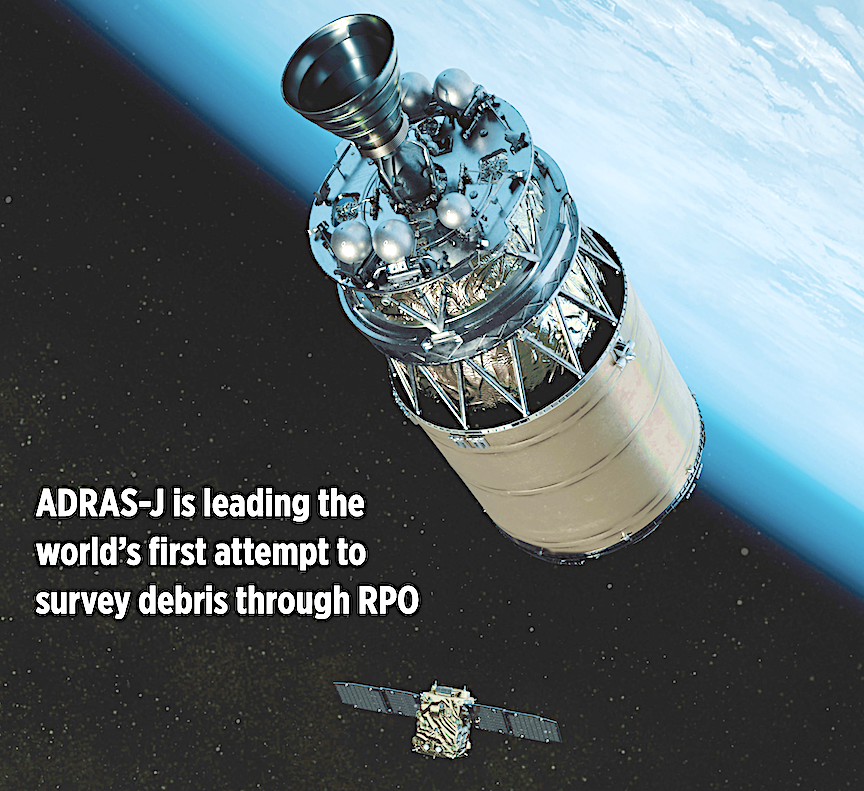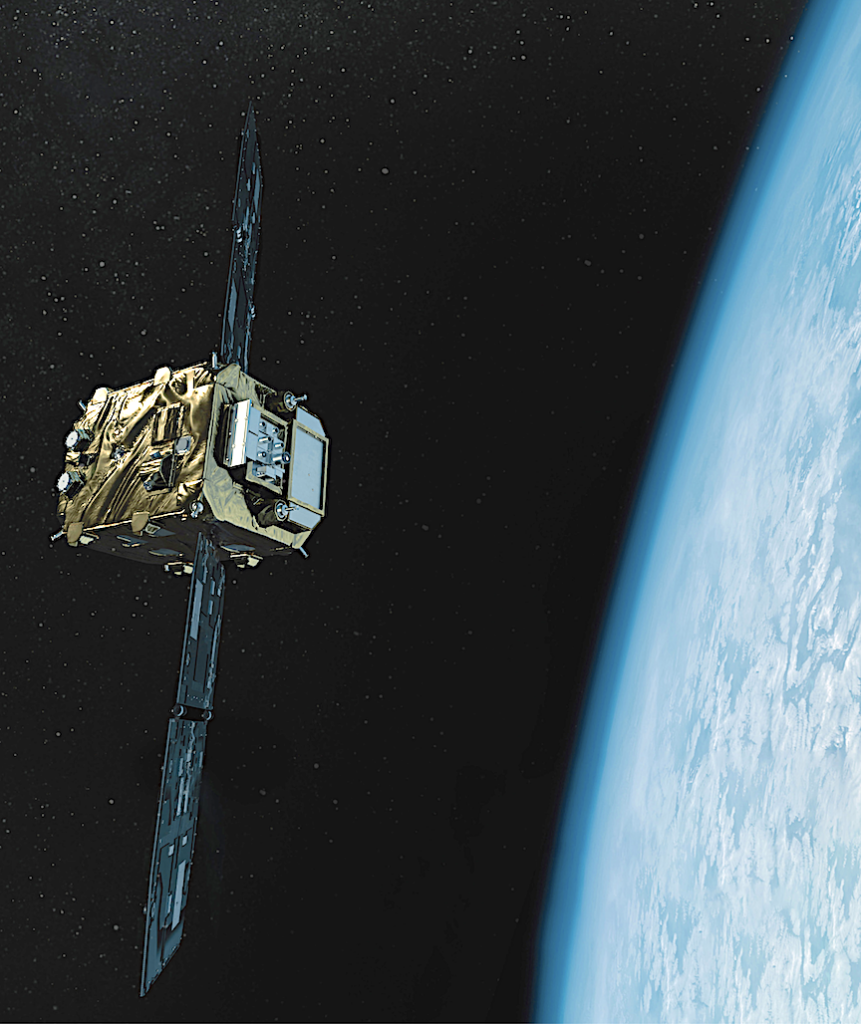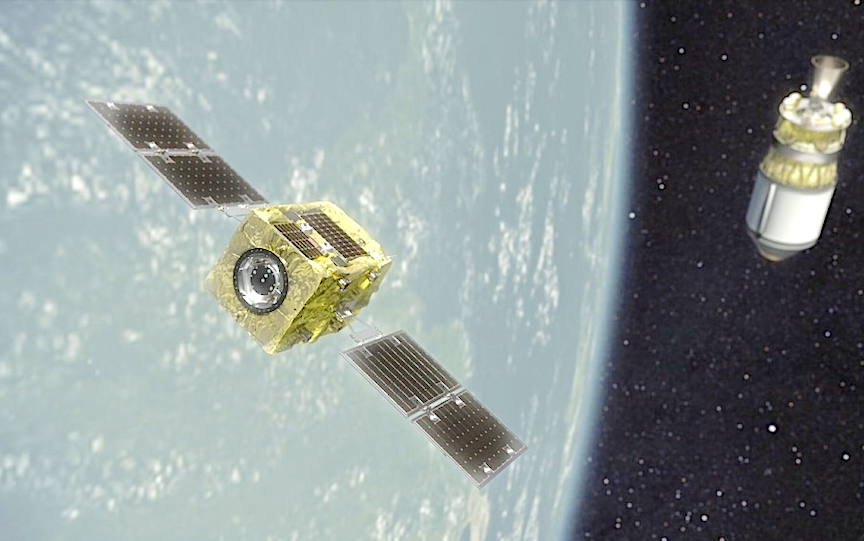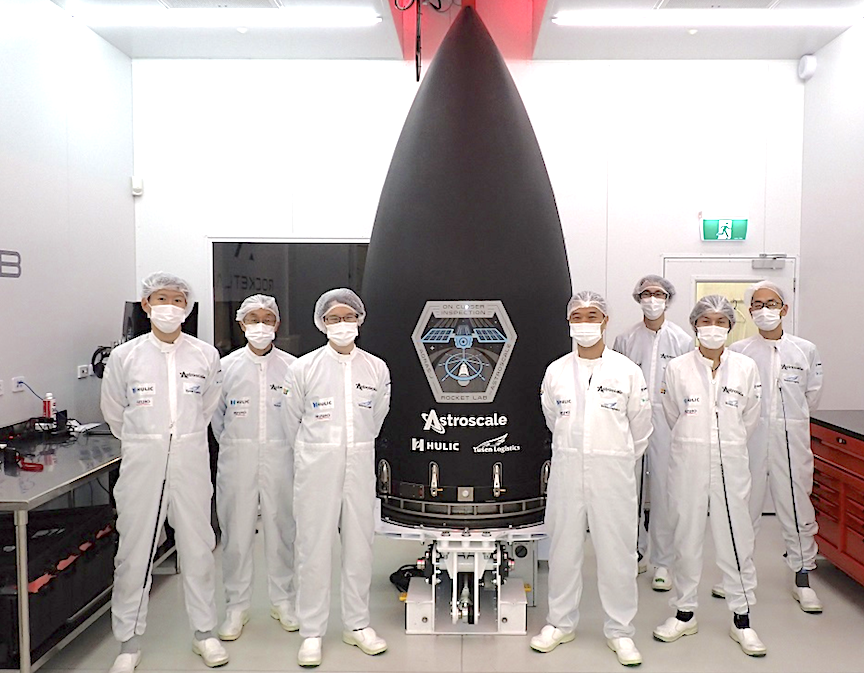
UPDATE 2: The next Electron mission is scheduled for lift-off on February 19 NZDT (February 18th UTC). The ‘On Closer Inspection’ mission is Rocket Lab’s second launch in 2024 and 44th Electron launch overall that is scheduled to launch during a 14-day window that opens on February 19th NZDT with back up opportunities through February should the need be to stand down for any reason.
Rocket Lab will not be attempting to recover Electron’s first stage during this mission.

The mission will lift-off from Rocket Lab Launch Complex 1 in New Zealand and will deploy the Active Debris Removal by Astroscale-Japan (ADRAS-J) satellite for Astroscale Japan Inc. It will gather data on the condition and spin rate of a large piece of space debris for a possible future removal mission. The mission is the first phase of an orbital debris removal program, and during this phase ADRAS-J is designed to test technologies and operations for approaching and monitoring debris objects, also known as space junk, and delivering data that will assist in removing it, to ensure the sustainable use of space for future generations.

Since the launch of the first satellite in 1957, the creation of debris in Earth’s orbits has been steadily increasing. This growth of debris is a threat to current and future space programs and has been the motivation for the development of various mitigation measures by the international space community. However, more recent analysis have shown that the commonly adopted mitigation measures will not be sufficient to stabilize the orbital environment and that active debris removal (ADR) must also be employed to secure a sustainable future in space.
However, before space debris can be removed, it must first be safely approached and characterized. What condition is it in? Is it tumbling, and if so, how quickly?
Creating a sustainable space environment by better understanding debris risks ADRAS-J, or Active Debris Removal by Astroscale-Japan, will answer these questions and offer unprecedented insight on thebehavior of debris objects in space.
A live webcast will be available approximately 20 minutes prior lift-off on launch day here: https://www.youtube.com/live/dcuZMP1m_g8?si=XERNEHlRv-d97aHL
Rocket Lab schedules Astroscale’s launch for ‘space junk’ inspection mission


Rocket Lab USA, Inc. (Nasdaq: RKLB), a provider of launch services and space systems, announced it has set the launch window for Astroscale’s orbital debris inspection demonstration mission.
The ‘On Closer Inspection’ mission is Rocket Lab’s second launch in 2024 that is scheduled to launch during a 14-day window that opens on February 19th NZDT. The mission will lift-off from Rocket Lab Launch Complex 1 in New Zealand and will deploy the Active Debris Removal by Astroscale-Japan (ADRAS-J) satellite for Astroscale Japan Inc. The mission is the first phase of an orbital debris removal program, and during this phase ADRAS-J is designed to test technologies and operations for approaching and monitoring debris objects, also known as space junk, and delivering data that will assist in removing it, to ensure the sustainable use of space for future generations.

After launching on Electron’s 44th mission to date, the 150-kilogram ADRAS-J satellite will approach an aged, derelict rocket stage in orbit to observe it closely, understand how it behaves and determine potential methods for its assisted deorbiting in future. The rocket stage it will be observing is the Japanese H-2A upper stage left in low Earth orbit after the launch of the GOSAT Earth observation satellite in 2009. ADRAS-J will fly around the stage, 11 meters long and four meters in diameter, inspecting it with cameras. After deployment from Electron, Astroscale’s full mission will take between three and six months to complete.
To enable the rendezvous with a non-cooperative space object requires a dedicated launch, highly responsive mission planning and extremely tight margins on orbital parameters. Rocket Lab only received the final perigee, apogee, and inclination from Astroscale 20 days before launch. Only then could argument of perigee targets for different days within the 14-day window be selected, essentially determining the timing of Electron Kick Stage burns to facilitate the unique elliptical orbit required depending on the launch date. The mission also demands highly accurate orbital insertion with tighter margins than required on most standard missions. In addition, the exact T-0 will only be defined the day prior to launch and the required LTAN accuracy only allows for +/- 15 seconds.
“Electron is really the only vehicle capable of delivering such a complex mission on an expedited timeline,” said Rocket Lab Founder and CEO Peter Beck. “With a dedicated launch on Electron the Astroscale team have a high degree of control over launch time and deployment parameters, and the Kick Stage delivers critical manoeuvrability for precise orbital deployment. We’re immensely proud to be working with the Astroscale team in support of a pivotal mission that could have real, positive benefits for managing space sustainability for future generations.”
“We are proud to join forces with Rocket Lab to launch the world’s first attempt to safely approach a piece of large debris,” added Astroscale Founder & CEO, Nobu Okada. “ADRAS-J is a testament to our commitment to technological innovation and to fostering the growth of the on-orbit servicing sector. This mission holds immense significance, not just for the future of space sustainability, but for pioneering advancements in Rendezvous and Proximity Operations, which are essential technologies to deliver any on-orbit servicing such as debris removal.”
